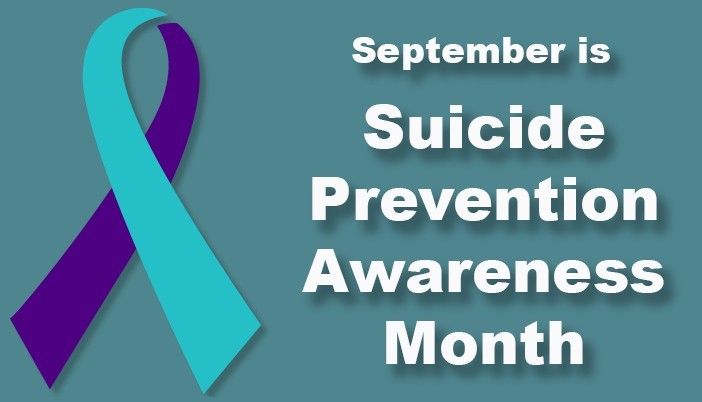The month of September is recognized as “Suicide Prevention Month” – a time to place the spotlight on the multiple resources available to those who may need crisis support or want to help someone they know.
Given the poker community has recently lost several players who died by suicide, PokerNews felt compelled to consult an expert for information and details regarding suicide risks, warning signs, and more. As such, we reached out to the Nevada chapter of the American Foundation for Suicide Prevention (AFSP) and spoke with Dr. Christine Yu Moutier.
If you or someone you know is experiencing suicidal thoughts or a crisis, please reach out immediately to the Suicide Prevention Lifeline at 800-273-8255.
Q&A w/ Dr. Christine Yu Moutier
PokerNews: A large demographic of the poker world is young men 21-45 years old. Is it fair to say that such a demographic is, for lack of a better word, “at-risk” when it comes to suicide?
Dr. Christine Yu Moutier: While we can’t pinpoint one single factor that makes certain demographics more vulnerable to suicide, it’s true that men, particularly those between the ages of 21-45, are at a higher risk than the overall general population (although middle to older age men have even higher risk than young men).
Research shows that men are approximately four times more likely to die by suicide than women. Part of this could be due to the fact that depression and other mental health issues are often underrecognized in men, who may feel pressure to suppress their emotions due to societal expectations. This reluctance to seek help can increase the risk of reaching a crisis point.
According to CDC data, from 2021 to 2022, suicide rates declined among younger males but rose for those over 35. This highlights the importance of awareness and support for mental health in this demographic, particularly in high-stress environments like the poker world. One of the known risk factors for suicide – among many – are mental health conditions such as addiction. While the large majority of players probably don’t have addictive gaming patterns impacting their mental health or life roles, some may, which if unaddressed can be another contributing factor to suicide risk.
Playing poker may also be a source of social connection for some players. Interpersonal connectedness is a protective factor against suicide risk.

What sort of factors can lead to suicidal thoughts? In poker, players often deal with a series of ups-and-downs, big financial swings, etc. If not responsible, all of that can lead to problems away from the game with family and friendships. It would seem like such high-pressure situations and lack of security would lend itself as suicide factors.
Suicide is a complex issue, and there is never just one cause. It’s often a combination of risk factors that lead to a sense of hopelessness and despair. High-pressure environments, like poker, can contribute to these feelings, especially when players face significant financial swings, instability, and the impact this can have on relationships and family life. Depression is the most common mental health condition linked to suicide, yet it often goes undiagnosed or untreated.
“In high-stress situations like those found in poker, it’s especially important to be mindful of mental health and recognize when support may be needed.”
Risk factors include both mental health conditions and external stressors, such as prolonged financial strain or major life changes. Additionally, a personal or family history of suicide or trauma can increase the risk of suicide. In high-stress situations like those found in poker, it’s especially important to be mindful of mental health and recognize when support may be needed.
All this said, playing poker, in the absence of risk factors (eg, depression, history of trauma, PTSD, anxiety, family history of mental illness or suicide, head injury, prior suicidal behavior, substance use disorder, etc) would not be considered as a suicide risk factor.
Here are mental health and suicide prevention resources that can help readers at risk.
For friends and family members, are there any warning signs that they can look out for regarding someone they feel might be struggling?
I recommend checking in on friends and family in a way that invites more authentic, honest sharing. Within poker playing communities, there’s an opportunity to check in on each other as well.
Warning signs of suicide risk can present as distress that “leaks out” in the form of changes in behavior, expressed hopelessness, changes in mood, or difficulty with daily activities that could indicate the presence of a worsening mental health condition. Men, in particular, may display warning signs differently – often through increased irritability, impulsiveness, or anger. They may show increases in use of drugs and/or alcohol.
Also, do not be afraid to ask someone if they have been having thoughts of suicide, especially if they are experiencing significant life stressors. If you’re concerned about someone or become aware that you or someone you know is having thoughts of suicide, it’s important to reach out to a mental health professional, or 988 for urgent concerns, for support and further help.
Here is a list of warning signs.

What’s the best way for someone who may be experiencing suicidal thoughts to find help/assistance?
Reaching out to have an open, honest conversation with someone in your life is a highly recommended first step, and sometimes necessary, to begin opening up and taking inventory about what may be contributing and what can be done to address the issues. It’s also a strong thing to do. These six steps from The American Foundation for Suicide Prevention’s #RealConvo guide may help when you’re looking to reach out to someone.
- 1.) Get the conversation started – The best way to broach the subject of your mental health with someone is to treat it as something important. (Because it is!) You might say something like, “Hey, there’s something I’d like to talk with you about. It’s kind of important to me and I’m wondering if we can make some time.”
- 2.) Schedule a time – Lock in a time that’s convenient for both of you. You can ask things like “I’m wondering if you have a few minutes at lunchtime for us to talk today” or “Is there a good time I might call you this evening?”
-
3.) Have a conversation face to face or ear to ear – Explain what it is you’ve been experiencing – changes in your thoughts, feelings, behaviors, sleep, energy and/or mood. You might tell them you’ve been feeling depressed, your usual coping strategies are barely working any more, that you haven’t been feeling like yourself, and/or that you’re “having thoughts that are troubling to you.” Be sure to identify any changes in your mental health that you’re aware of, so your loved one can understand the full picture. Talk about the things affecting you, as well as how they are affecting you.
For example, instead of saying, “Work has been really stressful because x, y, z…” try to identify how the stress at work has been impacting your mood, sleep, temper, and so on. It’s also helpful if you can look back and try to figure out how long the changes you’ve been experiencing have been going on. Did they happen gradually (over weeks to months), or more rapidly (hours to days)? Also think about what tends to either help or worsen your mental health symptoms. All of this information will help your loved one understand and support you, and together you might even be able to brainstorm some positive next steps to take!
- 4.)Follow up – After you’ve opened yourself up in such a brave, strong way about what you’re experiencing, reach back out to your loved one. Thank them for taking the time to speak, and let them know how important the conversation was to you.
- 5.) Don’t give up! – Just because you’re ready to have a conversation, it doesn’t mean it will be convenient at that moment for another person. This doesn’t mean they don’t care about you. Keep in mind that just as others may not realize what’s going on in your life, you also don’t know what may be going on in theirs at the moment. If the person you first reach out to isn’t available, for whatever reason, try someone else.
- 6.) Call 988 – Reach out to the 988 Suicide & Crisis Lifeline, it’s a national network of local crisis centers that provides 24/7, free and confidential emotional support to people – even if you’re not facing a serious or suicidal crisis. The Crisis Text Line (text TALK or AYUDA to 741-741) is also available for anyone and can connect you to help.
If you or someone you know is experiencing suicidal thoughts or a crisis, please reach out immediately to the Suicide Prevention Lifeline at 800-273-8255.

